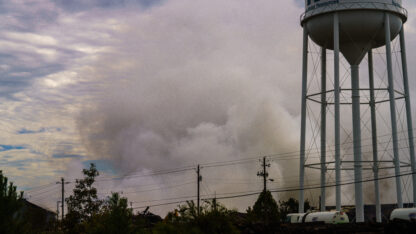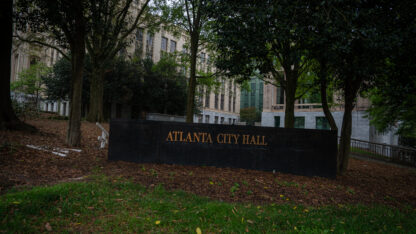Environmental groups are recognizing 13 institutions for their efforts to keep Georgia’s water clean.
The annual “Clean 13” list from the Georgia Water Coalition highlights municipalities, organizations, people and companies for their actions to address pollution, conserve water, and support science and advocacy.
One honoree this year is the City of South Fulton, which is prohibiting private businesses from using plastic bags.
It’s the first in the state to do so, though other Georgia municipalities have moved away from plastic in government operations, said Jennette Gayer, Director of Environment Georgia, which is one of the groups that contribute to the Clean 13 list.
“Nestled along the Chattahoochee River, the city is well-positioned to really understand the consequences of plastic pollution,” Gayer said. “Large flotillas of plastic are unfortunately a common sight on the Chattahoochee downstream of Atlanta’s urban center.”
Savannah’s work to limit plastic pollution also made the list. The city is working with restaurants to use recyclable and reusable aluminum to-go drink cups, instead of plastic.
Clean energy is another theme this year. Athens-Clarke County made the list for its commitment to power the community with renewable energy by 2050, and for finding ways to finance that goal through fees, grants and taxes.
“Solar arrays are popping up on fire station roofs, and low-income neighborhoods are getting water and energy efficiency assistance,” Joe Cook, author of the Clean 13 report, said.
Blue Bird Bus Corporation, which is building electric school buses, and Hanwha Q Cells, which operates a solar panel factory in Dalton, were also recognized.
Georgia Water Coalition members said it makes sense to focus on energy when talking about water in Georgia since natural gas, coal and nuclear plants need water to operate. Coal plants leave a toxic legacy in the form of coal ash, and coal and gas extraction can have an effect on water. However, solar plants don’t need water.
“We are moving towards a clean energy economy. It’s happening right before our eyes,” Cook said.
Other honorees include: activists in Madison County who successfully fought a creosote-burning facility in their community; a 4-H club in Mitchell County that started a camp to teach children about conserving water; two Georgia lawmakers who championed the passage of a bill to dedicate environmental cleanup funds; and a Savannah-based National Oceanic and Atmospheric Administration scientist who’s working to prepare African-American students for careers in climate, weather and ocean science.
The Clean 13 report has a more negative annual counterpart, the “Dirty Dozen,” which is also put together by the Georgia Water Coalition. Cook said in writing the positive version, he was struck by all the things people are doing.
“I always come away inspired by what we as individuals can accomplish for cleaner water and for better communities,” he said.









